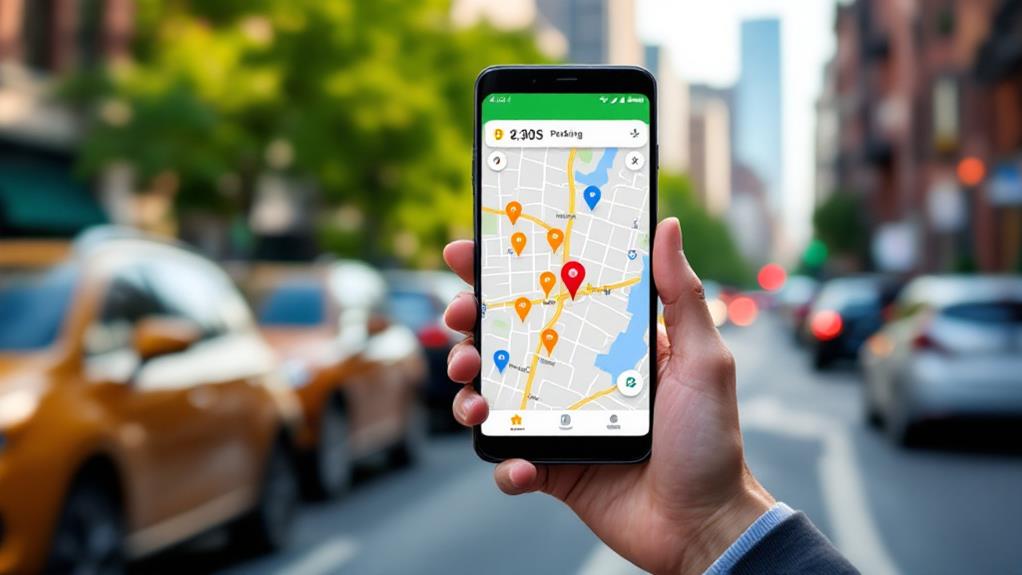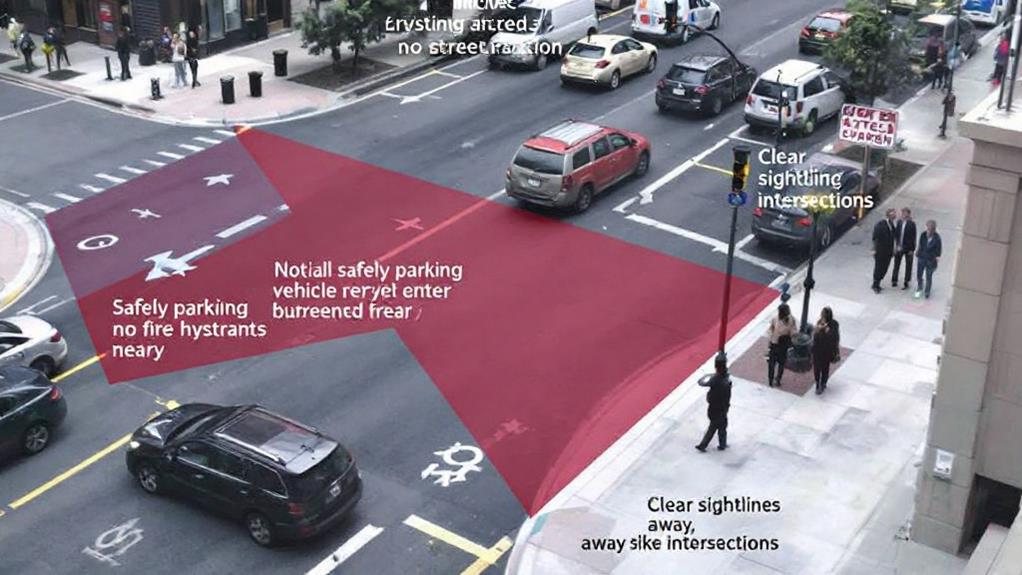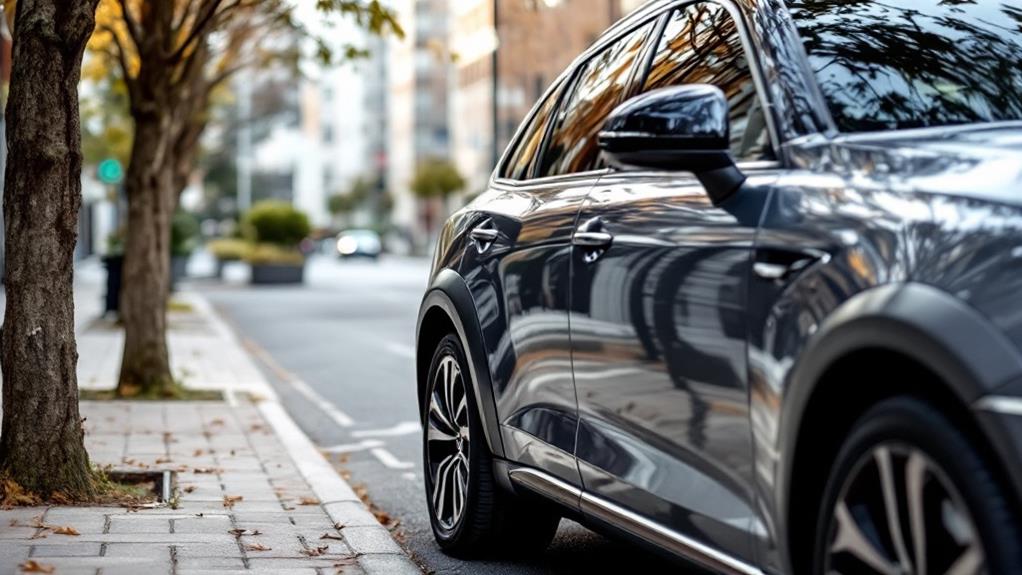How to Avoid Getting Towed When Street Parking
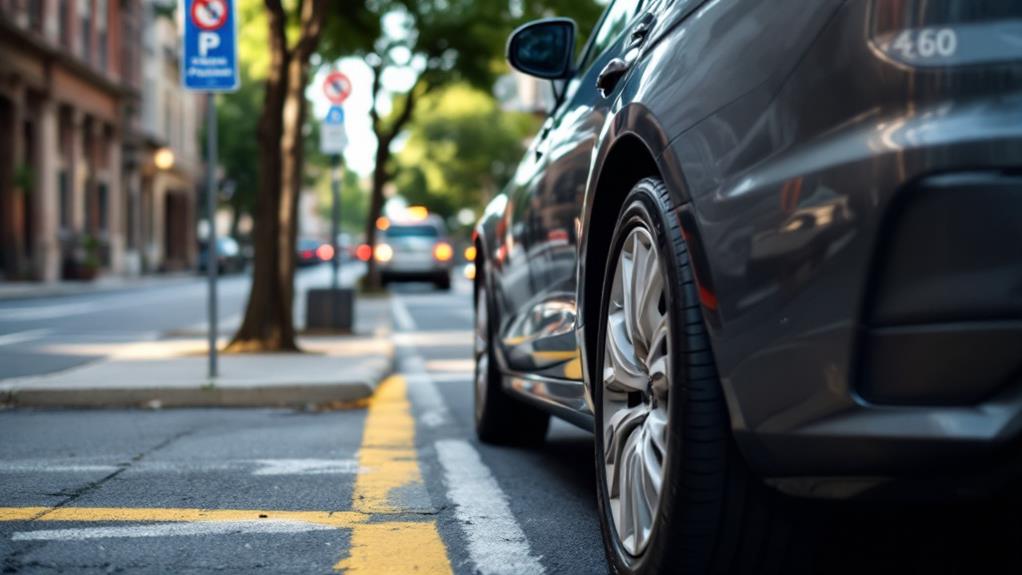
To avoid getting towed when street parking, familiarize yourself with local regulations and use parking apps for real-time information. Position your vehicle properly, leaving space for tow truck access and steering clear of tight spots. Steer clear of high-risk areas like fire hydrants, crosswalks, and no-parking zones. Keep your vehicle documentation up-to-date and easily accessible. Consider using anti-towing devices as deterrents, but remember they're not foolproof. Investigate alternate transportation options to reduce reliance on street parking. By following these tips, you'll substantially decrease your chances of an unwelcome tow. Uncover even more strategies to protect your vehicle and your wallet.
Understanding Local Parking Regulations
Five key steps can help you avoid getting towed when street parking. The first and most vital step is understanding local parking regulations. Every city and neighborhood has its own unique set of parking rules, so it's indispensable to familiarize yourself with them before leaving your vehicle in a public parking spot.
Start by paying close attention to street signs. These often indicate time limits, no-parking zones, and areas where parking is permitted or prohibited. Don't assume that a lack of signs means unrestricted parking; some areas have blanket regulations that aren't posted on every block. Be aware of parking meter policies, including time limits, rates, and accepted payment methods. This knowledge can help you avoid parking tickets and potential towing.
If you're in a residential area, check for permit requirements or restrictions. Some neighborhoods limit parking to residents or require special permits during certain hours. Stay informed about temporary parking restrictions due to events, construction, or street cleaning schedules. These can change regularly, so it's wise to double-check before parallel parking. By understanding and following local parking regulations, you'll greatly reduce your risk of being towed.
Utilizing Parking Apps and Services
Technology has revolutionized the way we find and manage street parking. By utilizing parking apps and services, you can substantially reduce your risk of getting towed or ticketed. These mobile apps provide real-time information on available parking spots, pricing, and payment options, making it easier to find legal street parking.
Popular parking apps like SpotHero, ParkMobile, and PayByPhone allow you to pay for and extend your parking sessions remotely. This convenience eliminates the need to rush back to feed parking meters or worry about expired time. Many of these apps integrate with existing parking infrastructure, enabling contactless payment and sending alerts when your session is about to end.
Additionally, parking apps offer precious information on parking restrictions, time limits, and no-parking zones, helping you avoid illegal parking situations. Some apps even provide access to discounted or validation-based parking rates in certain areas, making legal street parking more affordable.
Proper Vehicle Positioning Techniques

Proper vehicle positioning is essential to avoid getting towed when street parking. When you park your car, aim to leave enough space between your vehicle and the curb for a tow truck to access it if necessary. While it might seem counterintuitive, this can actually help prevent your car from being towed.
Be mindful of how you position your steering wheel when parking. Turning your front wheels at a sharp angle can complicate the towing process, forcing the tow truck driver to use dollies or a flatbed. Additionally, positioning your vehicle with the wheels turned can secure the steering, requiring the tow truck driver to use your car's key to disengage it.
Avoid parking in tight spaces between other vehicles or objects, as this can restrict tow truck access. Instead, opt for designated parking areas or marked spots whenever possible. This not only permits your car to be easily accessible but also helps you avoid potential parking violations.
Avoiding High-Risk Parking Areas
To steer clear of getting towed, it is crucial to recognize and avoid high-risk parking areas. First and foremost, stay away from fire hydrants, crosswalks, bus stops, handicapped spots, and no-parking zones. These locations are prime targets for parking enforcement and towing companies. Additionally, avoid parking in front of garages, driveways, or blocking access to residential properties, as these areas are also frequently monitored.
Always take the time to carefully read posted signs and examine street markings. These indicators will help you identify restricted parking areas that could result in your vehicle being towed. Be mindful of time-limited parking zones, as overstaying your welcome can quickly lead to towing. To minimize risk, seek out off-street parking options whenever possible. Parking garages and lots are generally safer alternatives to street parking.
Maintaining Vehicle Documentation
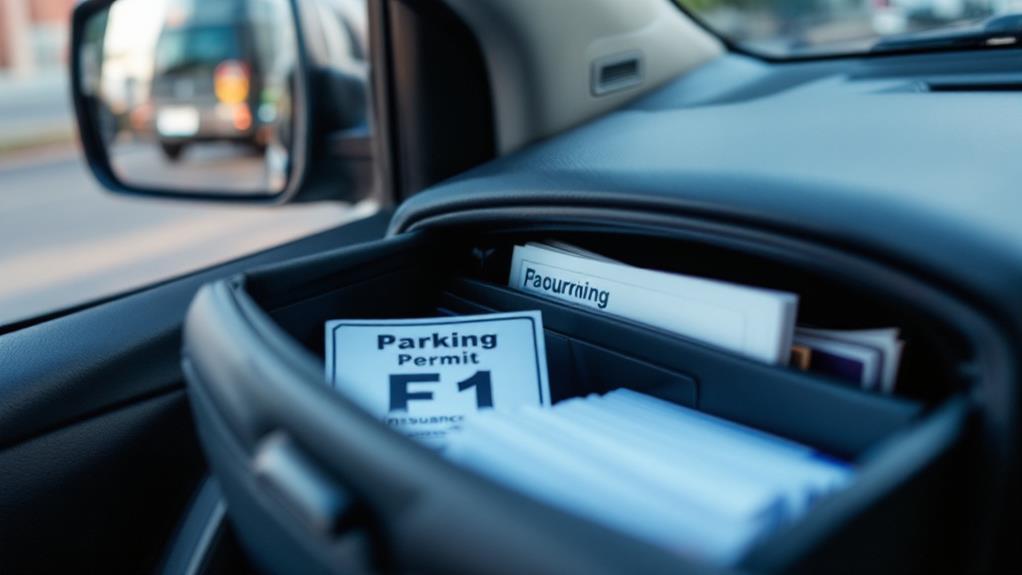
A well-organized glove compartment can be your shield against towing woes. To protect your car and make it more difficult for a towing company to impound your vehicle, keep your documentation up-to-date and readily accessible. Guarantee your registration, driver's license, and insurance proof are current and stored securely in your car. Regular vehicle inspections and maintenance records can also help you avoid issues that might lead to towing.
To maintain proper vehicle documentation:
- Keep a digital backup of all car-related documents on your phone
- Set prompts for renewal dates of registration and insurance
- Create a checklist of required stickers and tags for your vehicle
- Store a copy of your car's manual with maintenance schedules
Implementing Anti-Towing Devices
Innovative anti-towing devices can greatly reduce your risk of getting towed. These tools are designed to prevent your car from being towed away, even when a tow truck company attempts to remove it. One popular option is wheel locks, which secure your vehicle's wheels and make it difficult for tow trucks to lift and haul your car. You can install these locks quickly and easily, providing an extra layer of protection when parking in high-risk areas.
Another effective anti-towing device is a kill switch. This hidden switch interrupts your car's electrical system, making it impossible to start the engine. Without a running engine, tow truck operators can't easily move your vehicle. Some advanced kill switches even have GPS tracking, allowing you to locate your car if it's somehow towed away.
Consider investing in a steering wheel lock or a tire boot. These visible deterrents can discourage tow truck drivers from attempting to remove your car. Remember, while these devices can be highly effective, they're not foolproof. Always follow parking regulations and maintain proper documentation to minimize your chances of getting towed.
Alternate Transportation Options
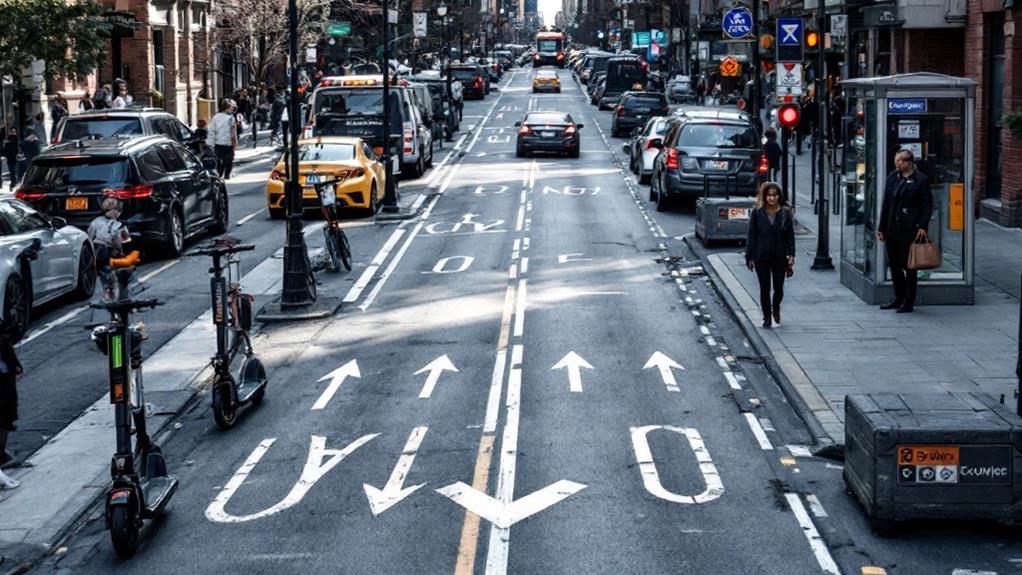
Recognizing the challenges of street parking, investigating alternative transportation options can greatly reduce your risk of getting towed. By examining public transportation, ridesharing services, bicycles, or walking, you can avoid the hassle of finding parking altogether. Research local bus, train, or subway schedules to plan multimodal trips that combine different modes of transport.
If you're looking to make a purchase that supports alternative transportation, contemplate investing in a folding bicycle or electric scooter. These options can provide first or last mile connectivity when combined with public transit. You can click on links to merchants on this site to survey various options, which may result in this site earning a commission through the eBay Partner Network.
- Utilize ridesharing apps like Uber or Lyft
- Invest in a folding bicycle for easy storage and transport
- Try electric scooters for short urban trips
- Walk shorter distances to reduce reliance on driving
